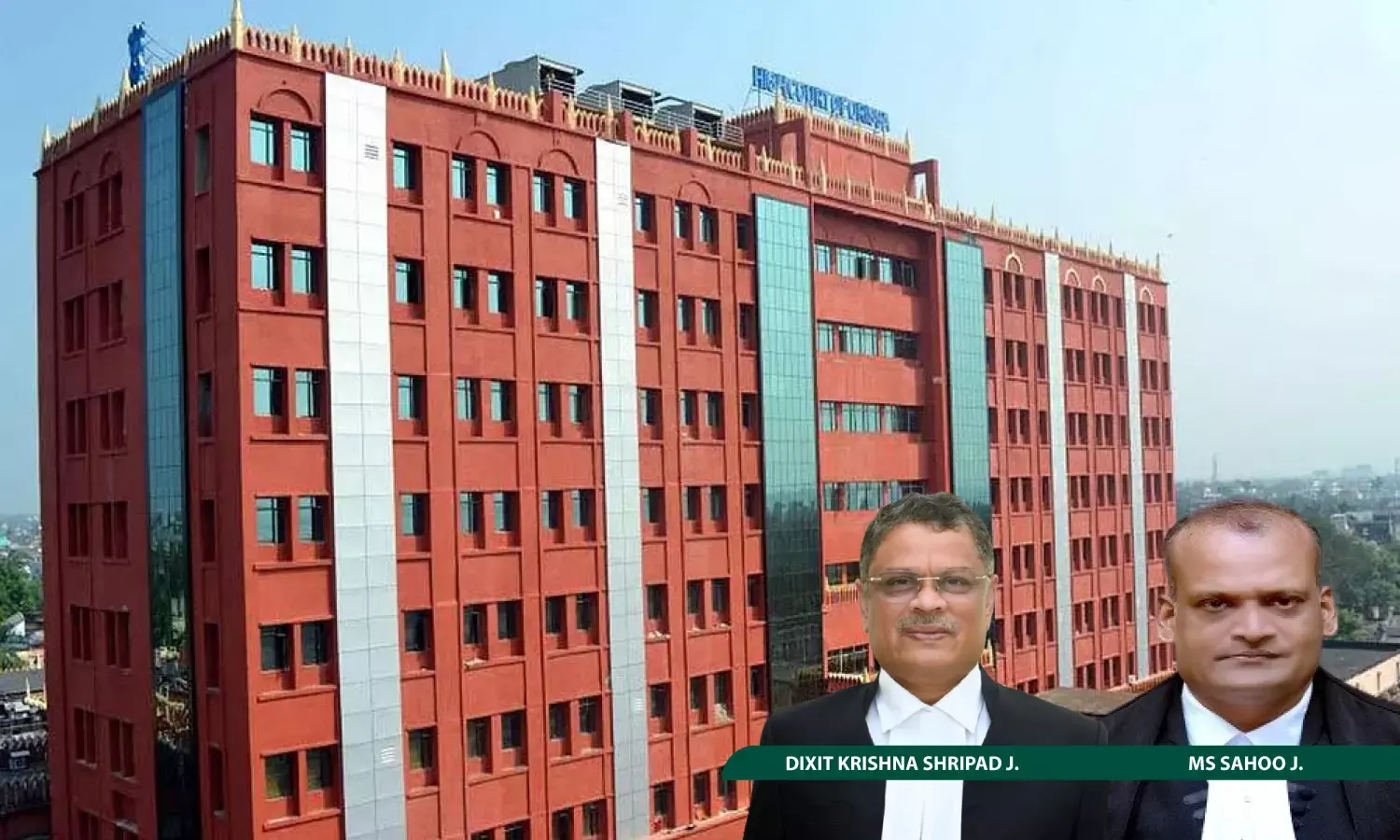Orissa High Court: Harsh & Disproportionate Treatment Meted Out To An Erring Citizen Runs Amuck Of Doctrine Of Proportionality
The Orissa High Court quashed an Order that had permanently debarred the Petitioner from staking claim for a Government appointment.

Justice Dixit Krishna Shripad, Justice M.S. Sahoo, Orissa High Court
The Orissa High Court held that a harsh and disproportionate treatment meted out to an erring citizen runs amuck of the doctrine of proportionality.
The Court quashed an Order that had permanently debarred the Petitioner from staking claim for a Government appointment, while repelling challenges to certain recruitment rules and notifications.
A Division Bench of Justice Dixit Krishna Shripad and Justice MS Sahoo remarked, “As a layman, what he has done is wrong simpliciter and therefore, he cannot be crushed by sledge hammer, when a mild pinch would do the rightful. There is also force in the submission of learned for the petitioner that the impugned order debarring his client from Government service permanently is too harsh to be sustained. A harsh and disproportionate treatment meted out an erring citizen runs amuck of doctrine of proportionality.”
Senior Advocate P.K. Rath appeared for the Petitioner, while Senior Advocate P.K. Mohanty represented the Respondents.
Brief Facts
The Petitioner, a Court employee, had aspired for employment in the Odisha Judicial Service. His journey through the recruitment process was met with a denial of appointment and a subsequent permanent debarment from public employment. This situation arose from allegations of non-compliance with the prescribed recruitment procedures.
Court’s Reasoning
The High Court explained, “The proviso to Article 309 read with the Articles 233, 234 & 235 of the Constitution bestow on the High Court a quasi legislative power in exercise of which 2007 Rules have been promulgated. Statutes and delegated legislations like the 2007 Rules enjoy a measure of presumptive constitutionality.”
“We are aware that the degree of presumption of constitutionality of a delegated/subordinate legislation like 2007 Rules is comparatively not as high as in the case of a statute. Even to rebut this, no convincing argument is made. A piece of subordinate legislation made by the delegate from the experience gained through the years cannot be struck down by a stroke of pen. An argument to the contrary runs counter to the constitutional jurisprudence of at least half a century. The subject clauses of OPSC recruitment notification are nothing but the replica of what the Rules prescribed and therefore they too cannot be faltered,” the Bench remarked.
The Court stated, “The impugned order, which not only de-candidatured the petitioner for the recruitment but also debarred him permanently from Government employment, is not a speaking order, as rightly argued by petitioner‟s counsel. A perusal of its text does not show for what reason such harsh penal action is levied on the petitioner.”
The Bench further remarked, “It hardly needs to be stated that existence of power is one thing and its exercise is another; existence per se is not a justification for its exercise. Heading of the Rule is crystal clear “Penalty for misconduct in the examination”. The text obviously gives power, as already mentioned. What is the false statement or incorrect statement allegedly made by the candidate, remains to be a mystery wrapped in enigma. When right to public employment subject to conditions is one of the facets of Article 16, the Government or the Public Service Commission has to be circumspect in invoking such a penal provision, more particularly when the candidate is denied appointment to the post in question.”
Consequently, the Court ordered, “In the above circumstances, this petition is allowed in part. The challenge to subject proviso of Rules 2007 and so also to the impugned paragraphs of subject OPSC Recruitment Notification is repelled. However, a writ of certiorari issues quashing the impugned order dated 30.06.2017 only to the extent it permanently debars the petitioner from staking claim for Government appointment and therefore he is entitled to participate in the future recruitment process, if he is otherwise eligible.”
Accordingly, the High Court allowed the Petition in part.
Cause Title: Dibakar Patra v. State of Odisha & Anr. (W.P.(C) No.14410 of 2017)
Appearance:
Petitioner: Senior Advocate P.K. Rath; Advocates A. Behera, S.K. Behera, P. Nayak, S. Das and S. Rath
Respondents: Senior Advocate P.K. Mohanty; Additional Government Advocate S.B. Panda; Advocates D.N. Mohapatra, J. Mohanty, P.K. Nayak, S.N. Dash, P.K. Pasayat and P. Mohanty

